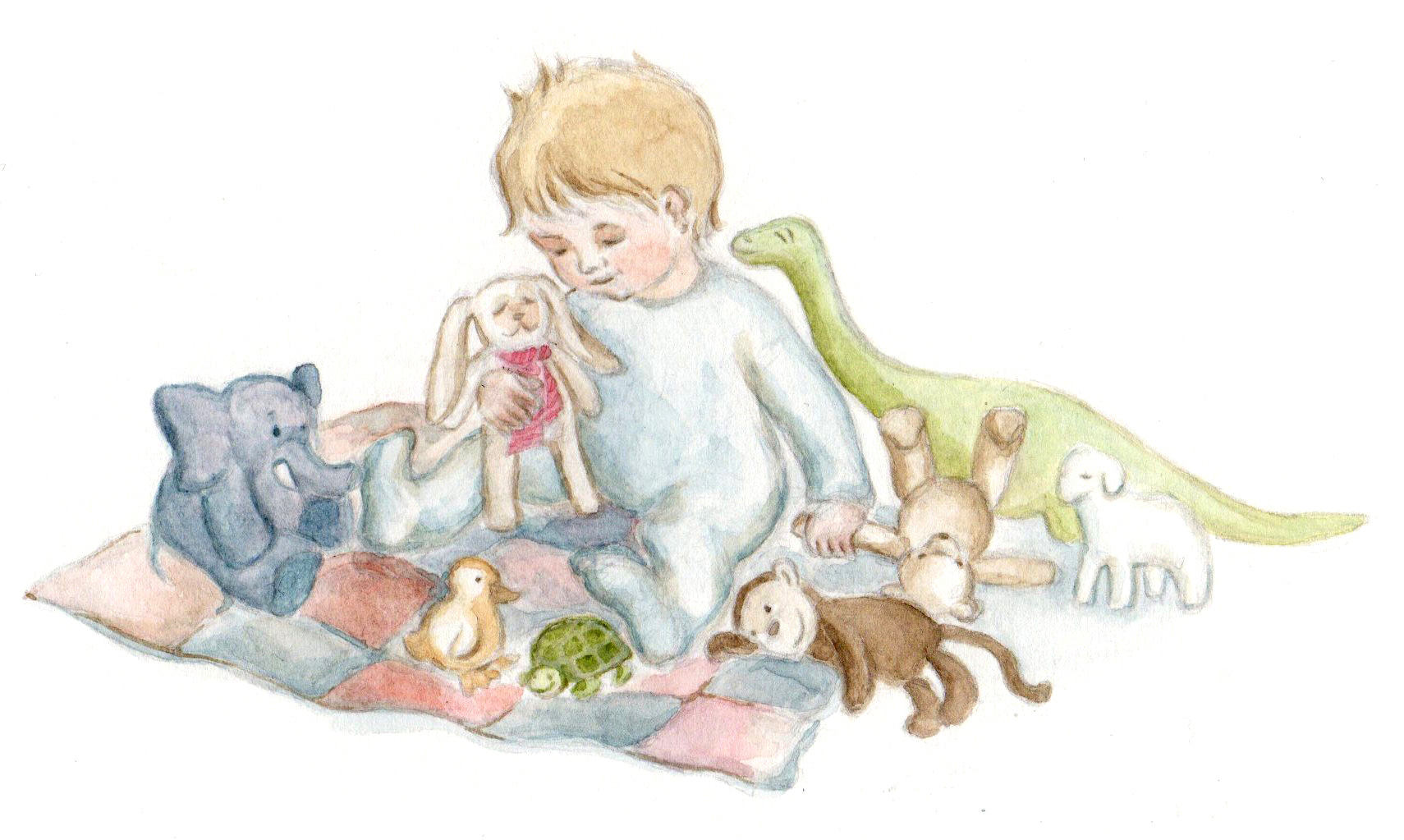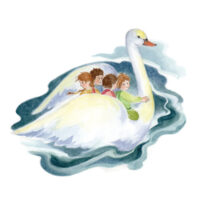Philipp Reubke works in the management of the Pedagogical Section. For him, free play is not only a space for children’s development. Educators also enter the field of inspiration and intuition, where unexpected things can occur and be solved. The Pedagogical Section feels responsible for this.
Three years ago, the monthly magazine ‹Le Monde diplomatique› published an article entitled: ‹L’anthroposophie – la multinationale de l’ésoterisme›. The article suggested that the Goetheanum, as a kind of ‹headquarters of Anthroposophy›, works similarly to Ikea or Amazon: someone had a brilliant idea for improving practice in the organization of service, production, packaging, and distribution. Characteristics of this type of organization are control of the branches by the company’s central body and skimming the profits which flow back from the branches. The author of ‹Le Monde diplomatique› considered the Goetheanum as a corporate headquarters that sells certain services (education, curative education …) and products (food, medicine …) relatively successfully by means of a clever sales method (Anthroposophy as a generation of credulity), claiming part of the profits for itself.
Throughout his life, Rudolf Steiner conducted research and educated his findings. In addition, he developed methods of researching in the spiritual field and showed how anyone who wishes to do so can strengthen their spiritual abilities. He also offered some very specific suggestions to individual professional groups on how they could improve their practices. This has allowed them to operate quite successfully over the course of 100 years, and in some cases, economically successful. Finally, he founded the School of Spiritual Science in a joint effort with Ita Wegman. Is the Goetheanums a supervisory authority? Or is it a research institute that, far off from the stress of daily educational practice, compares various educational theories with Steiner’s pedagogical approach? Or a kind of certification body that certifies certain colleagues or institutions, confirming that they are intellectually advanced to be seen as experts?
Cooperative Artwork
How do educators design free play in kindergartens? It cannot be controlled by rules, prohibitions, or declarations. Certain conditions are imperative: trust, warmth, a certain room design, and certain materials. Furthermore, the types of mental stimulation children receive through stories, songs, and dances are important. Children’s relationships with one another and with adults have a great influence on interest, openness, cheerfulness, and love. When all of this is present, from time to time, out of the blue – unpredictably – an activity of the children may occur in which actions, stories, constructions, and works of art are carried out in cooperation by the children. From the children’s activity, adults can get an impression of the children’s developmental state: how they overcome imbalance and trauma and what they want to learn. The I, which is not yet incarnated and hovers above children, can show itself in these moments of play as an impression – in the same way as, for example, the unconscious can show itself as impressions while we dream. Prophetically, for a short moment, a higher – not yet realized – entity of wisdom shows itself and provides the children with warmth, courage, and strength for their further development.
That is why children should not start attending school at the age of three. Control, rules and declarations prevent these moments. Of course, young children can also learn through school activities without free play. But school-based learning cannot awaken the dormant initiative power, wisdom hovering over their heads which can shine through in certain moments.
Here, too, it is worth remembering how the first Waldorf School was founded – no implementation of state curriculum and no mandating what individual teachers must do. Only certain frameworks: a team meeting once a week, a kind of advanced training course in which the study of human beings and child development, in general, is to be studied, and moments in which certain children are collectively focused on. Educator’s difficulties and successes are discussed. Advice is given to one another. Here, too, situations arise out of the blue in classes or amongst educators and individual children in which educators go beyond themselves. No matter how advanced educators are in the ‹field of spiritual research› they can experience moments of pedagogical intuition that can give children assistance and support for their entire future lives. Here, as there, certain conditions are important: relationship, interest, spiritual warmth, spiritual food – stories, songs and dances for children in kindergarten, research and study of child development, strong interest in the nature of human beings on the part of educators. And for both: freedom of initiative, creative imagination. What they make of it is up to each individual. The goal is each individual’s inner and outer activity.
The Pedagogical Section
In the Pedagogical Section, control, implementation of an abstract program also do not exist but rather research and communication about what conditions are necessary for education that most promotes the spiritual-mental and bodily self-activity, the I-activity. These conditions include:
1. A free school, which does not implement a program, but in which teachers study Anthropology, psychology, observe children, help each other and then through pedagogical creativity promote I-activity, their own and the children’s. 2. Flexible, reality-based conceptualization, trained by having intensively studied Steiner’s conceptualizations in these areas and thus having become capable of finding out what is most conducive to children in terms of method, didactics and content at what age. 3. Flexible time-related conceptualization that relates to contemporary educational discussions, which take into account the children’s current difficulties and possibilities at any given time. 4. A school culture that is related to local and regional culture and that can respond to parent’s different cultural, ideological religious backgrounds. 5. A social structure that promotes teachers’ own initiative, mutual appreciation, mutual awareness, learning from each other. 6. A school administration that is well aware of political-economic realities and finds compromises on how to achieve the goal – strengthening I-activity through education – as best as possible.
We are committed to creating research and study culture in institutions. We want to find answers to the question of what children need who are growing up in a culture that is increasingly determined by technology, in which awareness of the difference between man and machine is fading. How can health be promoted through education? How do schools and education develop in a child-friendly way in a multicultural society? We would like to contribute research on this matter.
Esoteric Practice
The kind of cooperation as it is laid out in free play in Waldorf kindergartens, as it is laid out in educator’s cooperation in Waldorf schools, is esoteric in nature. It is not built on a pre-established organizational chart, instructions and quality control, but on qualities such as mutual interest, attentiveness, agile thinking, spiritual warmth and other conditions described. They all depend on how our mental-spiritual activity intervenes in our behavior, in our actions. The current’s nature and strength form the riverbed, not the channel construction. In the chapter ‹Conditions of Esoteric Training› in the book ‹Knowledge of the Higher Worlds and its Attainment› one can read suggestions like: one could develop awareness of the fact that thoughts and feelings have consequences in the world that are as strong as external actions. Or that we could try not to change or improve so-called ‹difficult children› or colleagues whom one feels as opponents, but to ask what one could change in oneself, to what extent one is responsible for this antagonistic situation.
Each and every one of us has to deal with countless specific inner and outer difficulties along the way. We don’t all have the same motivation and abitliy for this. Should an authority exist that decides to what degree these abilities should be developed before one can work as a Waldorf teacher? Should those who are more advanced stay among themselves in a parallel training association and open schools of exceptional quality?
Let’s rather all work together to raise awareness of the conditions and try to realize them – from the Pedagogical Section to umbrella organizations to institutions. How each and every individual develops under these conditions is his or her ‹free play›, a form, a power that only each person can development within themself. Of those who have already experienced development in free play, of those we ask that they do not only develop particularly pure forms and forces among themselves, but rather tackle tasks at issue together in associations, institutions and in society. It’s like baking bread: Here, too, it makes no sense for the baking ferment to remain isolated. It is mixed with a lot of flour and water, then the dough rises and can be baked.
Illustration by Ella Lapointe, translated by Simone Stadlbacher





